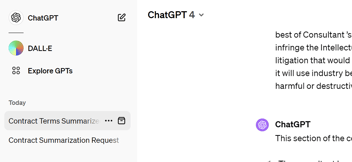
This week Microsoft showed, at its Microsoft Build 2025 event, that you can create multiple agents to perform tasks and have those agents work together. In particular, Microsoft demoed its new Contract Builder agent. (Starting at 27.50 in this YouTube video.) The agent was asked to draft a contract using a couple of sample documents. What was produced doesn't look like any contract I've ever seen. As Nir Golan noted in this LinkedIn post, "They just keep making sh*t up." The demo went on to show that the contract would be trained by subject-matter experts in some unspecified way.
It was bewildering. It made me think of a shell game, with the contract as the marker shuffled around under bottle caps. Or the contract as a MacGuffin—according to Wikipedia, "an object, device, or event that is necessary to the plot and the motivation of the characters, but insignificant, unimportant, or irrelevant in itself." For example, the statuette in The Maltese Falcon.
But contracts aren't widgets in need of an enhanced process. Instead, the challenge is making contracts that are clear, concise, and relevant. In other words, the issue is what you say, not the process by which you arrive at saying something generic. That's because mainstream contract drafting is mired in dysfunction, in terms of what contract say and how they say it. (I've devoted my career to chronicling the how-they-say-it dysfunction.)
The challenge is finding an alternative to the copy-and-paste machine. As I've demonstrated repeatedly, most recently in the post before this one (here), generative artificial intelligence isn't a viable alternative, because AI trained on dysfunction will just replicate that dysfunction.
If you have enough at stake that you want to address your specific needs, rather than make do with a cookie-cutter contract, the sensible option would be to use a highly customizable automated template maintained by someone who knows what they're doing. That would take the expertise you need and serve it up in an unglamorous but effective package. In other words, expertise plus process.
Only Adams Contracts offers that kind of template, just as I've been alone in thinking that the building blocks of contract language are a worthy subject of scholarship. You might want to check out Adams Contracts.


